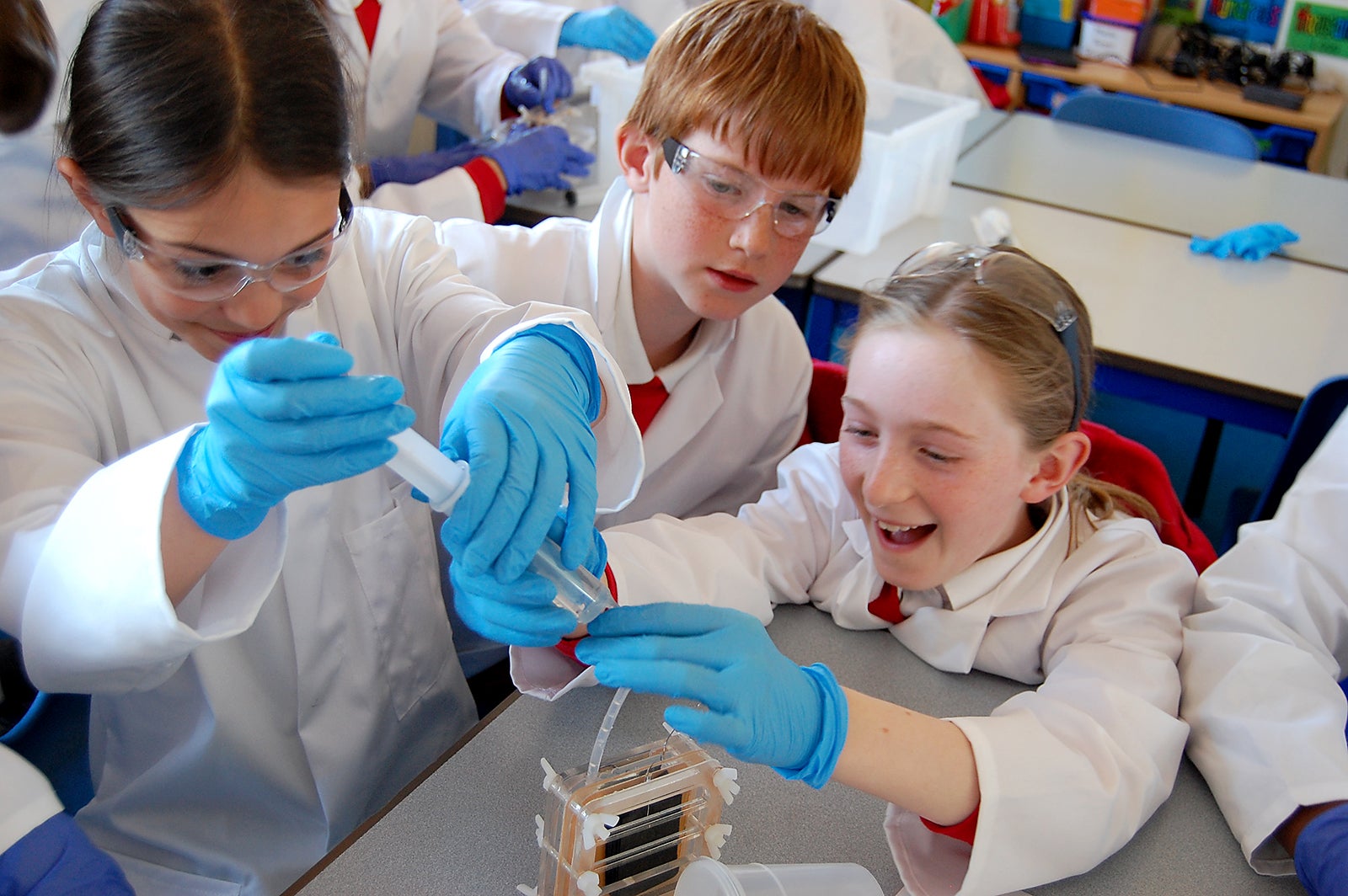Igniting interest in Stem by painting a bigger picture
Eureka-moment connections between lessons in a classroom and life in the outside world are challenging teenage perceptions of science, technology, engineering and maths

Your support helps us to tell the story
From reproductive rights to climate change to Big Tech, The Independent is on the ground when the story is developing. Whether it's investigating the financials of Elon Musk's pro-Trump PAC or producing our latest documentary, 'The A Word', which shines a light on the American women fighting for reproductive rights, we know how important it is to parse out the facts from the messaging.
At such a critical moment in US history, we need reporters on the ground. Your donation allows us to keep sending journalists to speak to both sides of the story.
The Independent is trusted by Americans across the entire political spectrum. And unlike many other quality news outlets, we choose not to lock Americans out of our reporting and analysis with paywalls. We believe quality journalism should be available to everyone, paid for by those who can afford it.
Your support makes all the difference.Preconceptions are dangerous things. Science is stuffy; girls aren’t interested in engineering; you have to be a genius to go to university.
The truth, however, changes lives.
Innovations in science and technology are the driving force behind our 24/7 lifestyles, and thousands more Stem (science, technology, engineering and mathematics) professionals are required to deliver the creativity and expertise that underpins everything from smartphones to ready meals, medicine to the music industry.
Engineering is about more than tinkering under a car bonnet. Behind every genius who makes the headlines is a team of skilled, ordinary people no less excited by the possibility of making extraordinary things happen. For many of them, a university education opened the door to career choices they never knew existed.
When Dr Corra Boushel meets teenagers in secondary schools, one of the first questions she asks is how much they know about university. Their answers often boil down to not a lot, with preconceptions about courses, cost, cleverness and careers skewing the picture for pupils and their parents.
And so instead of talking about the University of the West of England, Bristol (UWE Bristol) - where Dr Boushel works on BoxED, a regional schools outreach project - she puts real Stem undergraduates to work on the all-important business of connecting what 11 to 15-year-olds are taught in class with everyday experiences in the outside world.
“When you’re at school, the subjects you study can sometimes seem quite distant from reality outside the classroom when, actually, they’re fundamental to it,” she explains.
“Bringing out some of those aspects where pupils are least expecting them adds a touch of glamour and excitement. A single inspiring moment can link a subject they are learning about directly to bigger ideas.”
In contrast with nations such as China, the notion that many science and technology subjects are better suited to boys is ingrained in British culture. But delivering the sharp increase in highly skilled Stem graduates required to keep Britain buoyant in a global economy requires a gender-balanced workforce – and that means kick-starting both male and female curiosity early on.
“BoxED activities bring a little magic into the classroom by, for example, looking at beautiful protozoa moving around under a microscope; the sort of thing pupils have only ever seen in pictures or on natural history programmes,” says Dr Boushel.
“Experiencing a hands-on activity like that alongside a university student from a similar background to their own is a memorable moment for a 14-year-old.”
Ofsted recognises that the most effective way of raising achievement in science is through practical-based investigation and all BoxED activities are developed in conjunction with UWE Bristol’s Department of Education and appropriately linked to National Curriculum Key Stages in science, maths, geography, design technology and art.
Yes, art. One of the BoxED maths activities banishes preconceptions by tapping into street art. By illustrating the need to scale up perspective cube drawings, practical geometry meets popular culture – and a career interest in design or architecture may just be sparked along the way.
Join our commenting forum
Join thought-provoking conversations, follow other Independent readers and see their replies
Comments